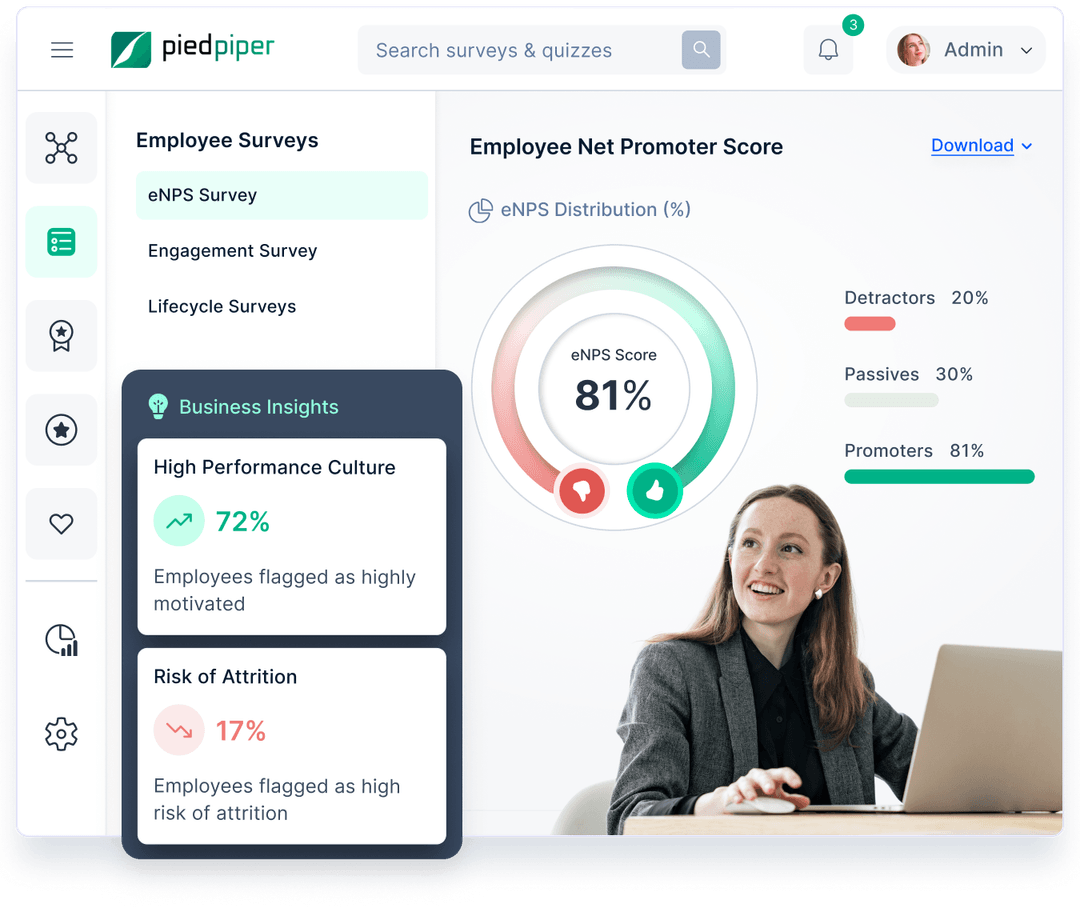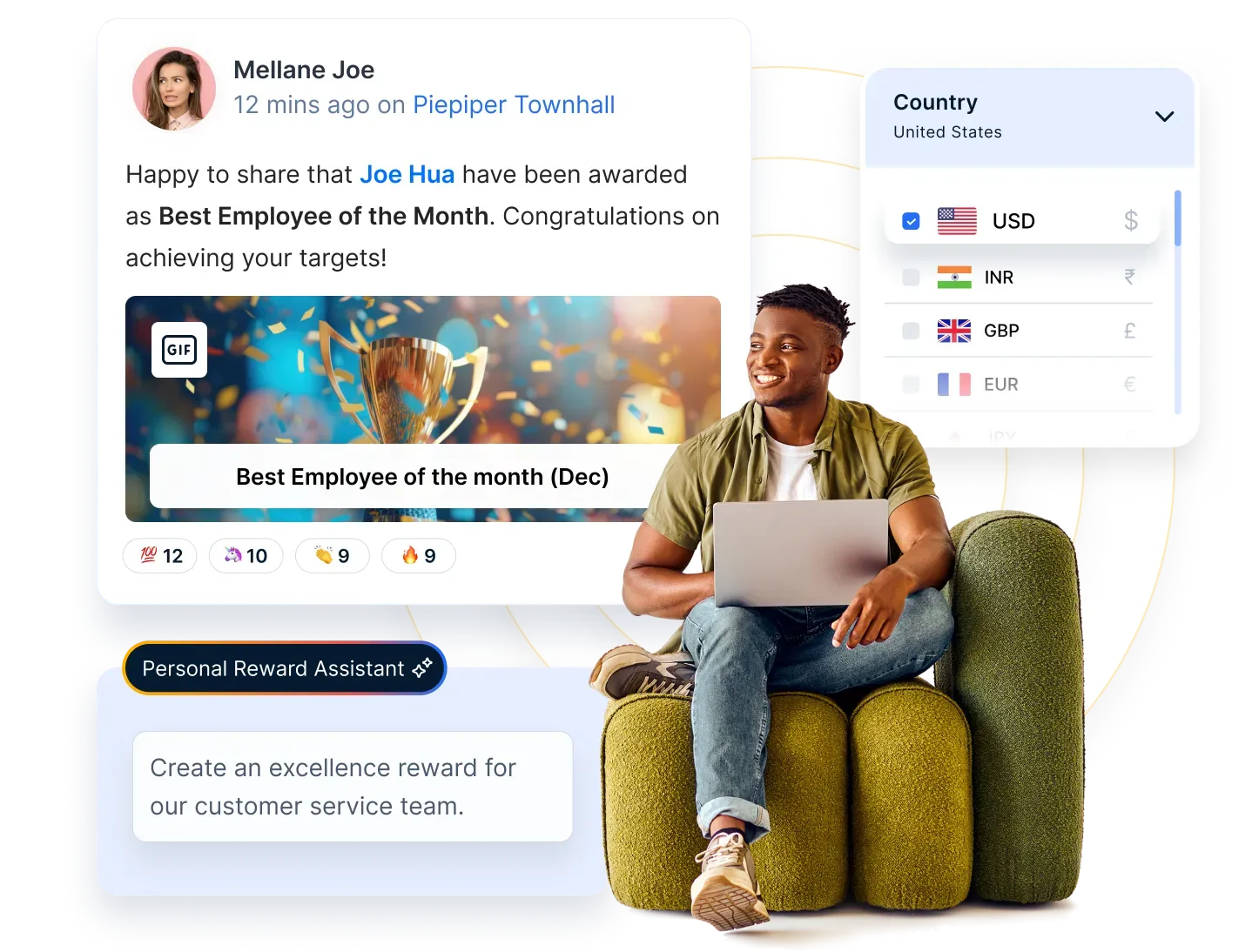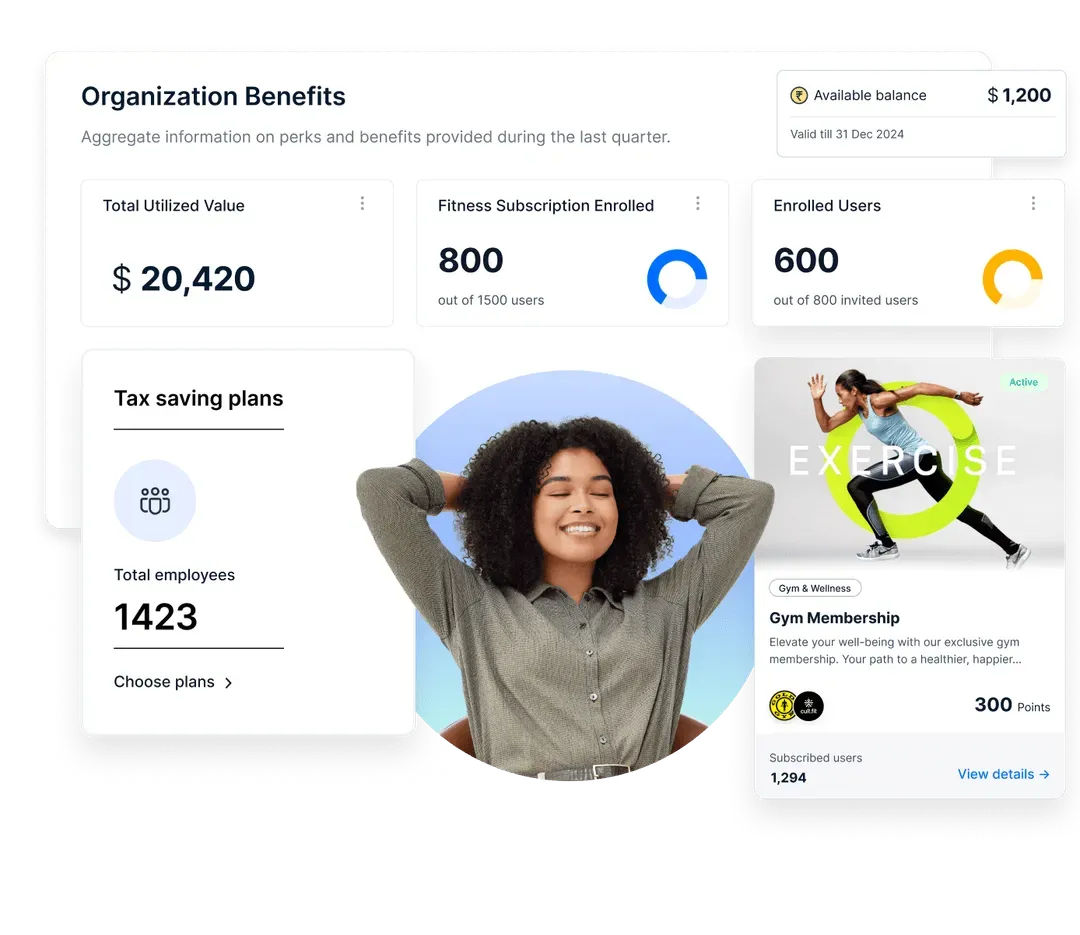On this page
What makes your company a success - or a failure? Many business leaders would say that it all comes down to the numbers on the bottom line, market share, or profitability. And while those are all important metrics, the most important element of your business is the people who make it run every day.
A Gallup report has shared that a highly engaged employee can result in a 23% increase in profitability. Meanwhile, a disengaged employee can cost an organization 18% of their annual salary.
Therefore, the best way to leverage the employees’ knowledge to the best of their ability is not by having them work increasingly long hours or getting maximum work for minimum pay - it’s by getting your employees involved in your organization. This goes beyond just engaging your employees in their work, though that’s important as well.
Employee involvement is about allowing employees to participate in your business's operations actively. Read on to learn everything you need about employee involvement's benefits.
What is employee involvement?
Employee involvement means it's not just senior leaders responsible for the company's growth and success - each employee has a role to play there, too, no matter how low on the corporate ladder they are.
According to their expertise, employees contribute to the company and provide innovative ideas that help the business solve organizational problems, hit key metrics, and more.
Why take such a seemingly radical approach to run your business with this level of employee involvement? After all, HBR has found that many managers and supervisors actually resist increasing employee engagement.
But it’s valuable because it helps build a sense of community and investment in your business, from the newest entry-level worker right up to the CEO.
That’s powerful.
Why is employee involvement important?
Employee involvement can seem like something that’s a nice idea but hard to put into practice. But in reality, for most organizations, it has significant benefits. Getting your employees involved has benefits for both your work and your business.
Here are eight benefits of employee involvement to an organization:
1. Your employees are more motivated
Employee involvement and motivation are strongly linked. It’s a simple fact of human psychology - when we feel we have a real stake in something, we are motivated to work harder and perform better.
When a business openly asks for and solicits employee feedback and then acts on that feedback, employees feel like their voice is heard. And they know the business is listening to them and taking action based on what they say.
That’s highly motivating - they go from feeling like pencil-pushers to valued, valuable assets to the business's greater good.
2. Change isn’t as feared
Today’s business world is fast-paced and only speeding up - changes happen at an ever-increasing pace. It’s easy for employees to feel overwhelmed by the pace and change when they feel helpless and voiceless.
But when those employees are given a voice to help guide the organization, suddenly they feel more in control and less averse to change.
3. You attract and keep more top talent
What do top performers want from their jobs? A sense of autonomy and ownership over their work. After all, if you’re going to make an effort to attract and hire top talent, you should let those superstar employees contribute to their fullest - not confine them to basic tasks and drudgery.
Your employees have incredible insight into many critical parts of your business, so let them guide how you run it can keep them around for the long run. With the high cost of turnover, keeping more employees around longer by giving them a voice is good for your bottom line.
4. You create a continuous learning environment
Ambitious and highly engaged employees always want to be developing their skills to succeed in their careers and roles.
Encouraging those employees to tell you what they need to know to do their jobs well benefits both your business and those workers - you can offer targeted training opportunities that really meet employee needs. Learning and development become less of a chore and more of a perk when their needs are met.
5. You increase employee engagement
Employee engagement happens when people are emotionally connected to the work they do, their team, and the goals of their larger organization.
Increasing employee involvement helps employees feel more connected to the organization's goals and strategies because their feedback helped shape it. That’s a powerful way to increase engagement levels significantly.
6. Your customers are happier
We’ve all experienced it - walking into a shop or store and encountering an employee who clearly loathes their job. While the employee may be well within reason to despise their role or the company they work for, the resulting customer experience is uncomfortable at best and downright unpleasant at worst. It doesn’t make you eager to return soon.
On the other hand, engaged and involved employees are happier about performing their duties, and customers pick up on this. Plus, those happy employees are much more likely to go the extra mile to delight customers.
7. You uncover more innovation
No one knows the ins and outs of the products and services you offer like your employees - they deal with them every day and are experts. That means they know what’s working really well and what’s causing pain points for your customers too.
This deep knowledge can lead to innovative solutions or ideas for new products, but you won’t find out about those great ideas unless you empower employees to speak up.
8. You uplift your people
These days, employees want more from the workplace than to be treated like a small interchangeable cog in a big machine. They begin to feel disengaged when they’re treated that way regularly.
Asking them for feedback and then acting on it, on the other hand, makes people feel heard, valued, and appreciated. And that makes them more likely to go above and beyond for your customers and your company. Pretty powerful stuff, right?
Best employee involvement practices
Now that you know the importance of employee involvement to your people and your business's success, how can you work to increase it effectively?
Putting some employee involvement practices and ideas in place will help you increase involvement and employee satisfaction.
Here are three best practices to improve employee involvement:
1. Ask employees what they think
Involving employees in your business starts with a simple step - ask them for their feedback! There are several ways to gather employee feedback to increase involvement, and finding the right method will depend on your employee base, size, and your organization's culture.
You can ask for open-ended feedback in surveys if you want to gather a range of suggestions from a wide variety of employees. You can ask targeted multiple-choice questions to dig into specific issues in a survey. Or you can get feedback by asking employees to contribute in an all-hands meeting or gather feedback via managers.
2. Take action on their suggestions
Now comes the step too many organizations ignore after asking for feedback - it’s time to take action on those suggestions. This isn’t to say you need to implement every suggestion an employee gives because that would be counter-productive.
But you do need to make a good-faith effort to adapt to many of the changes and solutions employees suggest, especially if there’s a strong groundswell of support for those changes.
If you ask for feedback without making any changes, employees will not feel involved or valued and become less engaged. You can’t always change certain things, but it’s best not to ask about those issues. And if it seems like you can’t change anything meaningful, it’s time for a harder look at why that seems true at your company.
3. Measure your results
Finally, you need to track and measure the results of your changes. You can run more surveys at this step, especially employee engagement and employee satisfaction surveys, to gauge how employees feel about your work. If results go up, well done! You’re on the right track. Empuls can help you run the right surveys for your needs and track your progress, as well as suggest any possible improvements.
While engagement and satisfaction are not perfect proxies for employee involvement, they’ll give you a pretty good look at how involved, and valued employees feel.
You can also look closely at your business results to measure your progress - have you shaved time off old processes, increased productivity, or seen innovation happening faster? Those could all be results of increased employee involvement as well.
Best practices you highlight + Empuls' support
Empuls, an employee/staff engagement software
Empuls is a holistic employee/staff engagement software that enables organizations to connect, align, motivate, and reinforce positive behaviors in employees to build a truly engaged culture.
Through Empuls, organizations can ensure continuous feedback and improvement throughout the employee lifecycle through real-time surveys, plan data-driven employee engagement activities, and fine-tune their action plan to improve the eNPS.
The platform also helps users appreciate and reward their team members with points that can be redeemed for gift vouchers and experiences.
Let’s unravel step by step how Empuls improves employee involvement.
1. Listening & feedback at scale

Lifecycle & Pulse Surveys: Empuls supports eNPS, pulse, and lifecycle surveys to continuously capture employee sentiment across their journey—from onboarding to exit.
AI Insights & Analytics: Managers get actionable suggestions from Empuls' AI assistant “Em” to address feedback and make data-backed improvements.
2. Ownership through recognition

Peer-to-Peer Recognition & Core Value Badges empower employees to recognize each other, reinforcing cultural values from the ground up. Smart Nudges by Em promote timely recognition, ensuring inclusivity and fairness in visibility.
3. Participation in the workplace conversation
Social intranet & communities: Empuls brings “watercooler moments” online with town halls, polls, and community groups for hobbies, onboarding, or feedback loops. Wishboards and digital celebrations build connectedness through shared milestones.
4. Autonomy through perks & benefits

Empuls offers flexible fringe benefits and tax-saving perks tailored to individual needs—supporting autonomy over one’s well-being and finances.
Options range from salary advances, meal/fuel allowances, to learning stipends and remote work support.
If you’re looking for a complete employee engagement solution, from designing the best survey questions to detailed analytics that tells you exactly what you need to do with your results, Book a Demo or Schedule a Free Trial of Empuls today.















